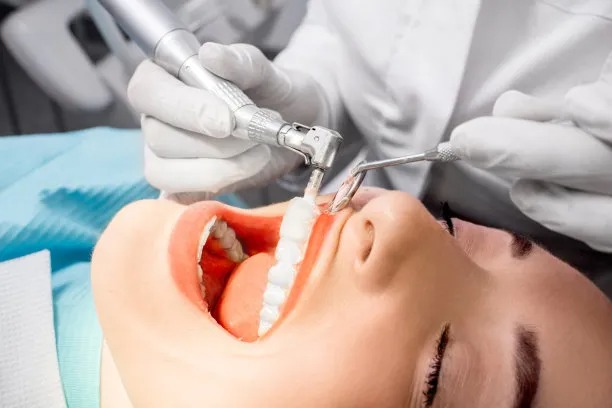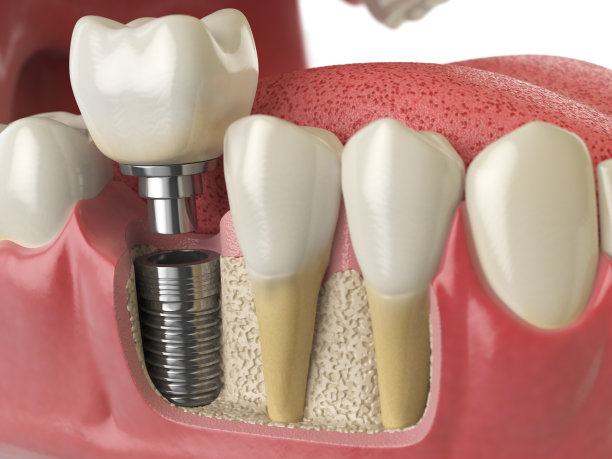Summary: Dental fillings are crucial for maintaining optimal oral health, especially after the onset of cavities. Before undergoing dental filling treatments, it is essential to consider various precautions such as understanding the procedure, choosing the right dentist, and preparing your diet. Post-treatment care is equally significant, encompassing proper oral hygiene, dietary adjustments, and regular dental follow-up visits. This article outlines essential precautions to take before and after dental filling treatments, ensuring a comprehensive approach to oral health. By following these guidelines, patients can promote speedy recovery and enhance their long-term dental well-being.
1. Understanding the Dental Filling Procedure

Before undergoing a dental filling treatment, it is crucial to comprehend the entire process. Dental fillings are needed when tooth decay has occurred, resulting in cavities. Understanding the procedure helps mitigate anxiety and prepares the patient mentally. Patients should discuss any concerns or questions with their dentist ahead of time, which ensures they are aware of what to expect during and after the filling.
Another important point is to choose the right type of filling material. There are several options available, including amalgam, composite resin, and porcelain. Each has its advantages and disadvantages, so its beneficial for patients to previous research and examine which material suits their needs best. This informed decision can play a significant role not only in the procedure but also in the durability and appearance of the final outcome.
Lastly, patients should keep track of their current oral health status. If any other dental issues are present, such as gum disease or sensitivity, it’s vital to address them with your dentist prior to the filling. So, understanding these aspects can pave the way for a successful dental procedure.
2. Choosing the Right Dentist for Treatment
Choosing a qualified and experienced dentist is paramount for the success of dental filling treatments. Always check their credentials and reviews from previous patients. A well-rated dentist with extensive experience in performing fillings can significantly reduce the likelihood of complications during and after the procedure.
Additionally, its advisable to pay a visit to the clinic beforehand. This allows patients to assess the facilities, the staff’s professionalism, and the overall hygiene standards of the practice. Feeling comfortable within the environment can alleviate anxiety about undergoing dental work, leading to a better treatment experience.
Furthermore, its worth discussing the pain management techniques your dentist intends to use before the filling. Being well-informed about the anesthesia options can greatly reduce pre-treatment anxiety, providing peace of mind as you approach your appointment.
3. Post-Treatment Oral Hygiene Practices
Once the dental filling has been completed, maintaining thorough oral hygiene is crucial for ensuring optimal healing. Patients should wait for the anesthesia to wear off before brushing their teeth to avoid accidentally harming their gums or the treated area. Gentle brushing techniques should be adopted to avoid irritation.
Moreover, it’s crucial to be mindful of the filling type when cleaning. For instance, composite fillings require cautious brushing to avoid wearing down the material. Patients should use a soft-bristled toothbrush and fluoride toothpaste for optimal care.
Another important aspect of post-treatment care is rinsing. Using an antibacterial mouthwash can help prevent infection and promote healing. However, patients should avoid vigorous swishing for the first few days post-treatment to allow the filling to settle properly.
4. Dietary Adjustments After Dental Fillings
Dietary adjustments after receiving a dental filling play a significant role in healing and comfort. Immediately after treatment, patients are advised to avoid hot and cold beverages until the numbness has subsided. Consuming these could lead to accidental bites or burns due to the reduced sensitivity in the mouth.
Additionally, it is recommended to stick with soft foods for the first few days following the filling. Foods like yogurt, applesauce, and mashed potatoes can help avoid discomfort while eating and prevent excessive pressure on the newly filled tooth.
Lastly, patients should limit sugary and acidic foods which could compromise the integrity of the filling and lead to further decay. Maintaining a balanced diet that emphasizes oral health will aid in the recovery process and safeguard against future dental issues.
Summary:
In summary, understanding the dental filling process, selecting a qualified dentist, implementing proper post-treatment oral hygiene, and making dietary adjustments are critical factors for optimal oral health after dental fillings. By paying attention to these precautions, patients can ensure a successful recovery and extend the lifespan of their dental fillings.
This article is compiled by Vickong Dental and the content is for reference only.
Vickong Dental
Vickong Dental is a large medical group established in Hong Kong in 2008 by professors from well-known medical universities in Guangdong and Hong Kong, as well as medical doctors from key national '985' universities (including Master's supervisors and senior professors). The chain of branches brings together expert dentists with PhDs and Master's degrees from Hong Kong and Mainland China, committed to providing high-quality dental treatment.
"Vickong Dental Practices the University Motto of 'Healing and Serving Society,' with a Stable Operation for Sixteen Years. It Has Been honored with Hong Kong Enterprise Leaders's Choice,' and is a Global Trusted Implant Center for the Nobel Implant System. Recommended by Hong Kong Metro Broadcast and Guangdong Television, it Serves Customers from Over Thirty Countries and Regions, Gaining the Trust and Favor of Citizens from the Guangdong-Hong Kong-Macau Greater Bay Area and Surrounding Cities.

Thousands of customers' unanimous praise
The most recognized and highly recommended dental service by customers in the Guangdong-Hong Kong-Macau Greater Bay Area
We Ensure You Receive Detailed Care and Attention Here
Hong Kong standards, Shenzhen prices, Your Trusted English-speaking dentists

Vickong Dental Medical-Grade Instrument Disinfection Process
Vickong Dental Medical-Grade Instrument Disinfection Process

Vickong Dental Chain: A Warm and Comfortable Environment for Treatment






Appointment Hours

Q&A
Why choose Vickong Dental?
Vickong Dental practices the university motto 「Medicine to Benefit Society」, with each branch bringing together highly qualified dentists with doctoral and master’s degrees from Hong Kong and the Mainland, and has maintained seventeen years of steady operation。Recipient of 「2024 Hong Kong Enterprise Leaders Brand」, 「2025 Hong Kong Enterprise Leaders Brand」, a Nobel Biocare Global Trusted Implant Center, and a brand recommended by Metro Radio Hong Kong and Guangdong TV。
To date, we have served customers from more than thirty countries and regions,earning exceptionally high word-of-mouth recognition and trusted recommendations from residents across the Guangdong-Hong Kong-Macao Greater Bay Area and surrounding cities
We have eight major branches in Zhuhai、Shenzhen,and a consultation and service assurance center in Hong Kong,so you can book a free consultation at any time for any questions,which is very reassuring.
If I do not accept the quotation after the CT scan, will I be charged??
No! As long as the actual treatment has not started, you will not be charged any fees.
Will there be any additional charges during the treatment process?
No, there won’t be any additional charges. Before treatment begins, we will clearly explain the treatment plan and its corresponding fees. Only after the patient agrees and signs the consent form will we proceed with the dental service.
Can I pay in Hong Kong dollars?
Yes. Vickong Dental accepts payment in Hong Kong dollars. The amount will be converted based on the exchange rate of the day, and the applicable rate will be clearly communicated to you in advance.
Can I reschedule my appointment at any time?
Yes. Please contact us via **WeChat** or **WhatsApp** as early as possible, providing your original appointment time and details, along with your preferred new date and time slot for rescheduling.













